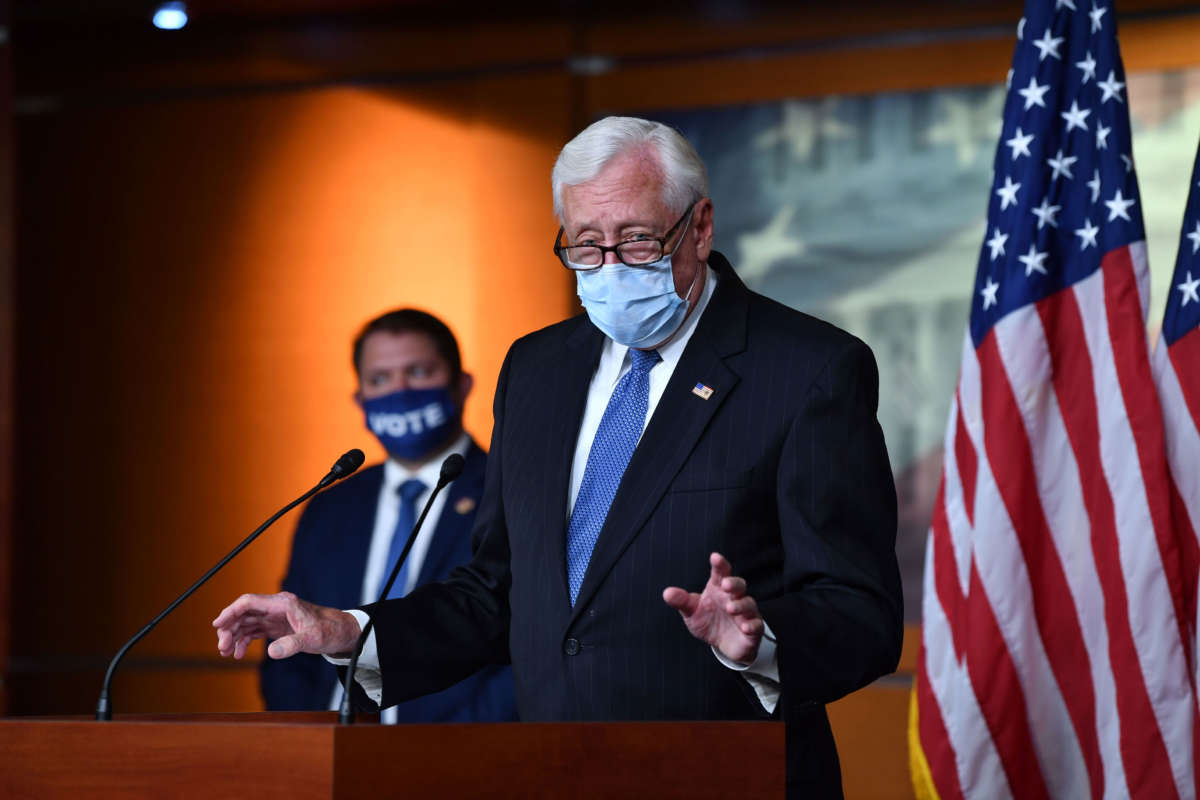Did you know that Truthout is a nonprofit and independently funded by readers like you? If you value what we do, please support our work with a donation.
After a meeting at the White House to discuss intelligence relating to how Russian military operatives were allegedly paying bounties to Taliban militants to kill U.S. troops in Afghanistan last year, House Majority Leader Steny Hoyer expressed disagreement with President Donald Trump, who had called reports on the matter a “hoax” in a tweet over the weekend.
“Intel just reported to me that they did not find this info credible, and therefore did not report it to me or @VP,” Trump said on Sunday. “Possibly another fabricated Russia Hoax, maybe by the Fake News @nytimesbooks, wanting to make Republicans look bad!!!”
According to reporting from The New York Times last week, Trump was supposedly briefed on the bounties on American soldiers made by Russian agents to Taliban militants months ago, with an update to their reporting stating that the president received the information in one of the President’s Daily Brief documents given to him in late February.
Separate reporting from The Associated Press, however, said that the White House was aware of the bounties as far back as last year, and that then-National Security Adviser John Bolton had briefed the president on them.
It’s unclear which narrative is the more accurate version of events at this time.
The briefing that House leaders received on Tuesday made it clear, however, in Hoyer’s mind at least, that the situation was not something to take lightly, and that the White House was in possession of credible intelligence corroborating the Times’s and other news agencies’ reporting.
“The president called this a hoax publicly. Nothing in the briefing that we have just received led me to believe it is a hoax,” Hoyer said at a press conference. “There may be different judgments as to the level of credibility, but there was no assertion that the information we had was a hoax.”
Hoyer also criticized the fact that the briefing at the White House did not include perspectives from intelligence agency officials. Absent from the meeting, Hoyer noted, was CIA Director Gina Haspel.
Without the input of intelligence officers, the briefing was less insightful, more demonstrative of the White House’s views.
“I thought this briefing was the White House personnel telling us their perspective. I think we knew the White House perspective,” Hoyer added. “What we need to know is the intelligence perspective.”
Hoyer further called the information he was briefed on a “red flag” — one that was either “not waved” to begin with, or that the president ignored when he first saw it.
Joining Hoyer at the press conference on Tuesday was House Intelligence chair Rep. Adam Schiff, who was also among those briefed at the White House about the intelligence regarding the Russian bounties. Schiff suggested in his statement that the fact that Russia was involved may have led to aides not briefing the president on the matter.
“I shared the concern at the White House today that I think many of us have, which is, there may be a reluctance to brief the president on things he doesn’t want to hear, and that may be more true with respect to Putin and Putin’s Russia than with respect to any other subject matter,” Schiff said.
Press freedom is under attack
As Trump cracks down on political speech, independent media is increasingly necessary.
Truthout produces reporting you won’t see in the mainstream: journalism from the frontlines of global conflict, interviews with grassroots movement leaders, high-quality legal analysis and more.
Our work is possible thanks to reader support. Help Truthout catalyze change and social justice — make a tax-deductible monthly or one-time donation today.
